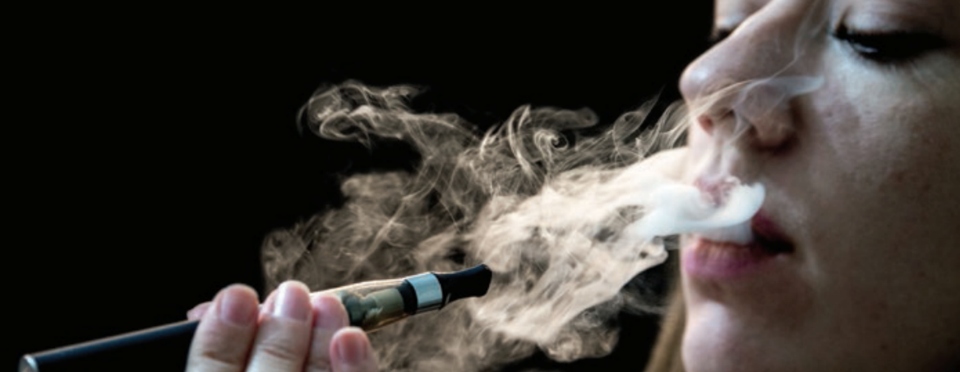VCH addictions expert Dr. Milan Khara will be on the Sunshine Coast Dec. 9 for a public talk at Chatelech Secondary School about vaping.
“It’s a community issue and we want to approach it as a community to support all our youth,” said Kate Kerr, director of instruction for student support services at SD46.
Khara has also been invited to visit the four secondary schools at School District No.46 (SD46), which is covering the costs of the visit apart from a $1,000 grant from Health Canada under the Substance Use and Addictions Program.
As with other school districts, vaping has become a pervasive problem at Sunshine Coast schools. “It’s provincial, it’s national, it’s definitely an issue,” said Kerr.
McCreary Centre Society’s 2018 BC Adolescent Health Survey – considered one of the most comprehensive youth health surveys in the province – found that 21 per cent of all B.C. students have used a vape with nicotine in the past month. Another study by the society found youth were more likely to have vaped than smoked tobacco, and that youth living in rural communities vape more than their urban counterparts.
As a former principal at Chatelech Secondary School, Kerr has witnessed the issue first-hand. “Often the kids are so used to doing it and it becomes such a piece of their daily life that they are becoming addicted to the nicotine,” she said.
Vaping is discussed at the district’s healthy schools committee, which includes stakeholders outside of the school district, and the district works with VCH’s tobacco reduction coordinator to provide guidance to principals, councillors and students on vaping.
SD46 has also received $5,000 through a Healthy Schools BC Regional Grant, which will be used for substance use panels for all Grade 7 students, with vaping included as a topic.
Early prevention has been identified as a focus, in addition to the challenge of balancing punishment and support for students who have become addicted.
Last year SD46 mandated that vaping was prohibited on all school district property.
“That is one of the key pieces in particular for our secondary school principals, is how do we support the kids after they’ve recognized they have this need?” said Kerr.
A lack of consensus on the health consequences of the activity has also muddied the waters, leading some students and caregivers to believing there are few health risks associated with the activity. “They’re thinking that this is something it’s OK to do,” said Kerr. “We’re trying to play catch up as quick as possible.”
To that end, intermediate teachers were invited to attend a Dec. 5 session to learn about a specific curriculum for Grades 4 to 7 and a “vaping prevention toolkit” provided in partnership with health authorities and the BC Lung Association, which enumerates the known health risks involved with vaping. “What we’re finding is we really need to start the education when they’re in Grade 4 and 5, because if we’re just doing the education at high school, it’s often not soon enough,” said Kerr.
Students are also organizing around the issue.
In October, about 250 Grade 11 students gathered at a YMCA camp to discuss issues of importance to them, and chief among those was vaping. “A lot of students recognize the issue and that it’s something we need to take action on,” said Jessica Carroll, student trustee for SD46 who helped organize the forum.
She said a significant topic of discussion at the forum was a need for “teachers and authorities to stop criminalizing it and making huge punishments and suspensions and provide help, support and resources for students suffering from addiction and vaping regularly.”
“It is a really tricky thing to deal with… It truly is a societal problem, it’s not something the school can do on its own,” she said.
Kerr said the district is exploring how to create an environment where students can approach trusted adults for help at schools and get connected to health care professionals, and the district is planning to solicit feedback from students to find out what their needs are.
“It’s not just about, you are caught vaping, you are in trouble and these are the consequences. It’s the next step of how do we wrap around you, to support you so that we’re thinking about your well being?”
If the strategy works, it will mean more resources for youth beyond school property, said Kerr. “It’s not just about the students and staff, it’s about our whole community.”
The event runs from 7 p.m. to 8:30 p.m. and free child care will be provided.
To register for child care contact District Support Services at 604-885-6782 or email [email protected]



